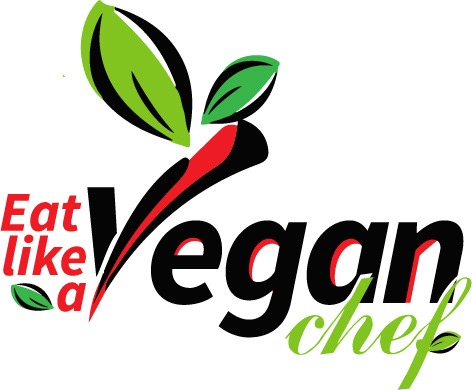Chickpeas: A Complete Guide
Introduction & Overview
Chickpeas, also known as garbanzo beans, are a staple legume widely consumed across the globe. They belong to the Fabaceae family, with the botanical name Cicer arietinum. Chickpeas have been cultivated for thousands of years, with origins tracing back to the Middle East and Mediterranean regions. Today, they are an essential part of various cuisines, from Indian curries to Middle Eastern hummus.
Common Varieties
- Desi Chickpeas: Small, dark, and rough-textured, commonly used in Indian and Middle Eastern cuisine.
- Kabuli Chickpeas: Larger, light-colored, with a smooth coat, often used in Mediterranean and Western dishes.
- Green Chickpeas: Fresh, young chickpeas that are tender and slightly sweet.
- Black Chickpeas: A darker, more nutrient-dense variety, often used in Indian cooking.
Seasonality & Availability
Chickpeas thrive in warm climates and are typically harvested in late summer or early fall. They are commonly grown in India, Pakistan, Turkey, Ethiopia, and Mexico. While fresh chickpeas are seasonal, dried and canned versions are available year-round, making them an accessible and versatile pantry staple.
How to Choose the Best & Freshest
- Fresh Chickpeas: Look for bright green pods that are firm and plump.
- Dried Chickpeas: Choose beans that are uniform in size, without cracks or wrinkles.
- Canned Chickpeas: Opt for BPA-free cans with minimal added salt or preservatives.
- What to Avoid: Avoid chickpeas with an off smell, mold, or excessive shriveling.
Storage & Shelf Life
- Fresh chickpeas: Store in the refrigerator and use within 3-4 days.
- Dried chickpeas: Keep in an airtight container in a cool, dry place for up to 12 months.
- Cooked chickpeas: Refrigerate in an airtight container and consume within 3-5 days.
- Frozen chickpeas: Freeze cooked chickpeas for up to 3 months.
Nutritional Benefits & Health Properties
Chickpeas are a powerhouse of nutrients, making them an excellent addition to a plant-based diet.
Macronutrients (per 1 cup cooked):
- Carbohydrates: ~45g
- Protein: ~15g
- Fat: ~4g
- Fiber: ~12g
Key Vitamins & Minerals:
- Iron: Supports oxygen transport in the blood.
- Magnesium: Essential for muscle and nerve function.
- Folate: Vital for cell growth and development.
- Zinc: Supports immune function.
Health Benefits:
- Supports digestion: High fiber aids in gut health.
- Regulates blood sugar: Low glycemic index prevents spikes.
- Heart health: Rich in heart-friendly fiber and antioxidants.
- Weight management: Keeps you full longer due to high protein and fiber content.
Culinary Uses & Cooking Methods
Chickpeas can be enjoyed raw, cooked, mashed, or ground into flour. Their mild, nutty flavor makes them suitable for both savory and sweet dishes.
Best Cooking Methods:
- Boiling: Soak dried chickpeas overnight, then boil until tender (~45-60 minutes).
- Pressure Cooking: Reduces cooking time to ~20-30 minutes.
- Roasting: Toss with spices and bake at 400°F (200°C) for a crunchy snack.
- Blending: Use for dips, spreads, or hummus.
Popular Dishes Featuring Chickpeas:
- Hummus (Middle Eastern)
- Chana Masala (Indian)
- Falafel (Mediterranean)
- Chickpea Salad (Western)
- Socca (Chickpea Flatbread) (French)
Pairing Suggestions
- Best Herbs & Spices: Cumin, coriander, turmeric, garlic, rosemary, thyme, paprika.
- Complementary Ingredients: Tomatoes, spinach, lemon, tahini, olives, sweet potatoes.
- Best Cuisines: Mediterranean, Indian, Middle Eastern, Latin American.
Recipe Ideas & Inspirations
1. Oil-Free Roasted Chickpeas
Ingredients:
- 1 cup cooked chickpeas
- 1 tsp smoked paprika
- 1/2 tsp garlic powder
- 1/2 tsp cumin
- Salt to taste
Instructions:
- Preheat oven to 400°F (200°C).
- Spread chickpeas on a baking sheet and season with spices.
- Bake for 25-30 minutes, tossing halfway through.
- Enjoy as a crunchy snack or salad topping.
2. Creamy Chickpea Hummus
Ingredients:
- 1.5 cups cooked chickpeas or 1 15oz can
- 3 tbsp tahini
- Juice of 1 lemon
- 1 garlic clove
- 1/2 tsp cumin
- 1/2 paprika
- 2 tbsp aquafaba
Instructions:
- Blend all ingredients until smooth.
- Adjust consistency with water if needed.
- Serve with veggies or in a whole-grain wrap.
3. Chickpea & Spinach Curry
Ingredients:
- 1 can chickpeas, drained
- 2 cups spinach
- 1 diced tomato
- 1/2 onion, chopped
- 2 cloves garlic
- 1 tbsp curry powder
- 1 tsp turmeric
- 1 tsp cumin
- 1/2 tsp salt (optional)
Instructions:
- Sauté onions until translucent.
- Add tomatoes, chickpeas, and spices. Simmer for 10 minutes.
- Stir in spinach and cook until wilted.
- Serve with quinoa or brown rice.
Substitutions & Alternatives
- For chickpeas: Use white beans, black beans, or lentils.
- As an egg substitute: Use aquafaba (chickpea brine) for vegan baking.
- Chickpea flour: Swap with oat flour or almond flour in recipes.
Fun Facts & Trivia
- Chickpeas were one of the first cultivated legumes, dating back 7500 years.
- Aquafaba, the liquid from canned chickpeas, can be whipped into a vegan meringue.
- India is the largest producer of chickpeas worldwide.
- Ancient Romans used chickpeas in skincare and medicine.
Sustainability & Environmental Impact
- Low water usage: Requires significantly less water than animal protein sources.
- Nitrogen-fixing properties: Improves soil health by naturally adding nitrogen.
- Minimal waste: Every part of the chickpea plant is usable.
Common Challenges & Solutions
- Tough chickpeas? Soak longer and cook with baking soda.
- Gassy after eating? Rinse canned chickpeas well and introduce them gradually into your diet.
- Too bland? Boost flavor with citrus juice, garlic, or herbs.
Special Considerations
- Allergies: Rare but possible; some may have a legume intolerance.
- High in purines: Those with gout should consume in moderation.
- Great for athletes: Provides sustained energy and muscle recovery support.
Conclusion
Chickpeas are a delicious, nutritious, and versatile addition to any whole-food, plant-based diet. Whether you enjoy them in curries, salads, or as a crunchy snack, they are an excellent source of protein and fiber. Try incorporating more chickpeas into your meals today and experience their amazing health benefits!


